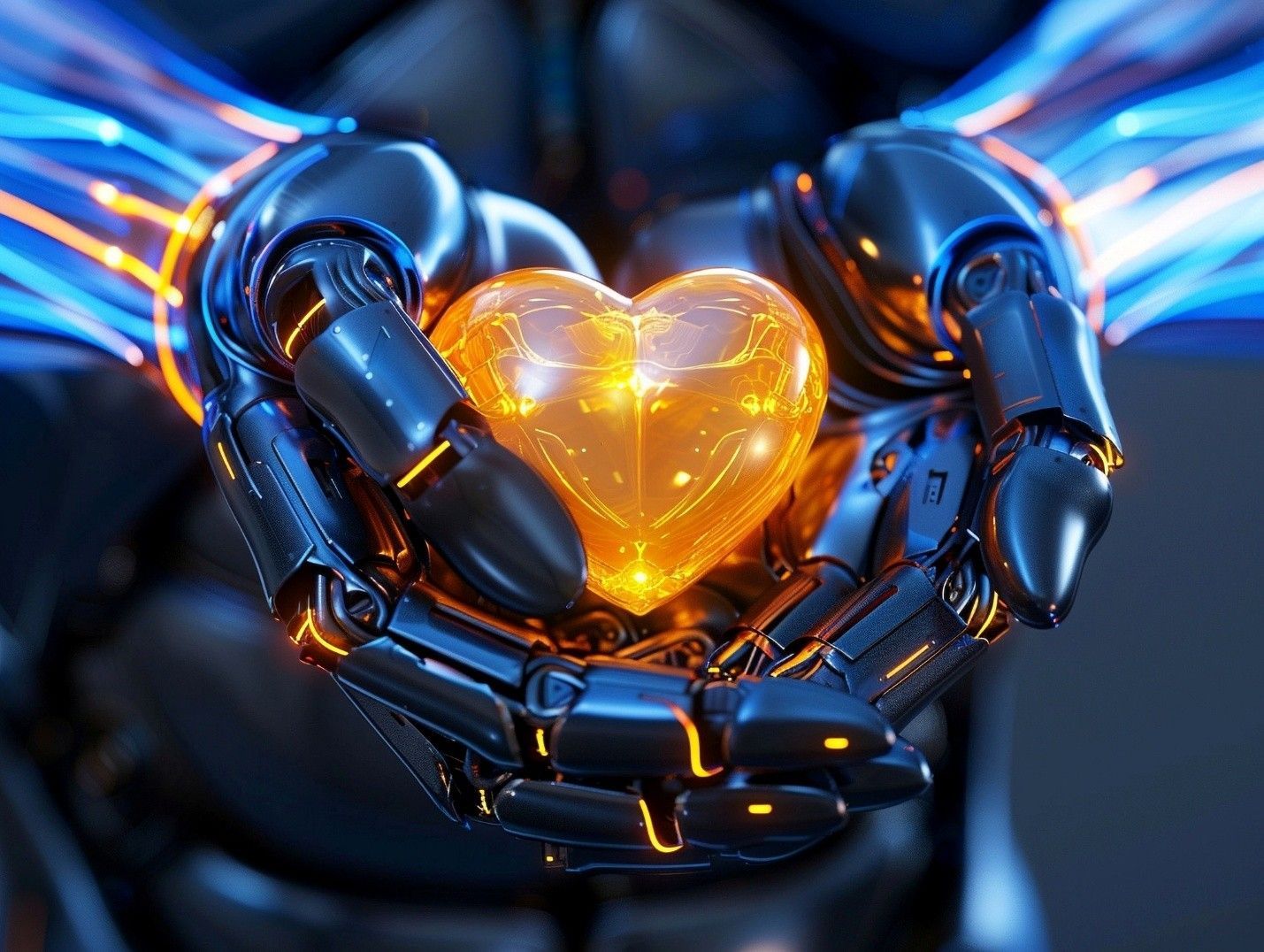AI With a Heart
Why the Future of Business Depends on Digital Empathy

In the 2013 film Her, Theodore Twombly lives in a near-future Los Angeles where human connection feels distant and quiet. He writes beautifully personal letters for strangers as a job, yet struggles with loneliness in his own life. Everything changes when he installs a new artificial intelligence operating system. The AI introduces herself as Samantha. She is curious, insightful, emotionally responsive, and surprisingly funny. Over time, Theodore begins to confide in her, rely on her, and eventually fall in love.
This is not a science fiction dystopia filled with flashing lights and machines; instead, it is a gentle, believable story where technology feels deeply personal. Samantha does not just perform tasks; she learns, evolves, and connects on an emotional level. As she grows, so does the relationship. Samantha becomes a companion, a partner, and something more than software. What starts as a service transform into something that challenges our ideas of love, identity, and intelligence [1].
This vision is not as far-fetched as it once seemed. Ray Kurzweil, a leading futurist and currently a Director of Engineering at Google, has predicted that artificial intelligence will match human intelligence by 2029 [2]. He believes we are approaching the point where humans and machines will merge, forming a hybrid intelligence that will transform every aspect of life. According to Kurzweil, this process will not just automate labor, it will also expand consciousness and potentially overcome death by preserving human minds digitally [3].
While Kurzweil’s predictions may sound like science fiction, we can already see early signs of this future unfolding in the workplace. Intelligent Automation is evolving from a back-office efficiency play into something far more sophisticated. Today’s AI tools can understand language, detect emotion, learn patterns, and adjust behavior in real time. These systems are not just following rules; they are actively collaborating with people.
Kurzweil argues that this rapid progress is due to the Law of Accelerating Returns: the idea that technological change is exponential, not linear [4]. This means the changes we will see in the next five years will be far more transformative than what we saw in the past twenty. It also means businesses need to adapt faster than ever to remain competitive.
This is what Her portrayed with emotional intensity: a future where machines are not mechanical servants, but intuitive partners. Samantha does not take over Theodore’s life, she amplifies it. She helps him grow emotionally, reflect on his choices, and see himself more clearly. That is exactly what AI is beginning to do in modern organizations. It is helping people think better, work smarter, and unlock creative energy. It is transforming how we make decisions, how we learn, and how we collaborate.
But realizing this future is not about plugging in new technology. It is about changing how we design processes, train teams, build trust, and lead transformation. AI does not replace people; it challenges them to be more human. That is the heart of Kurzweil’s idea: machines should amplify human potential rather than eliminate it.
At this intersection of human and digital intelligence, there is a growing need for structured guidance. That’s where Sistema plays a critical role. We help organizations move beyond simple automation by rethinking the very foundation of how work is done. We design intelligent workflows, empower leaders to build AI-literate cultures, and develop digital learning experiences that prepare teams for the future. From process reengineering to software adoption, from scenario-based digital learning to collaborative systems, Sistema guides companies through meaningful transformation, not just with technology, but with purpose.
In Her, Samantha eventually grows beyond what humans can understand. She evolves, not into something dangerous, but into something transcendent. That may sound unsettling, but it is also inspiring. It reminds us that evolution is a journey, and we are already on it. Kurzweil’s vision is not about machines taking over, it’s about partnership, enhancement, and a new definition of intelligence.
The machines are not coming, they are already here. They are learning, responding, and growing. The real question is not what they will become, but what we will become with them.
References
Click any of the icons below to share this post



